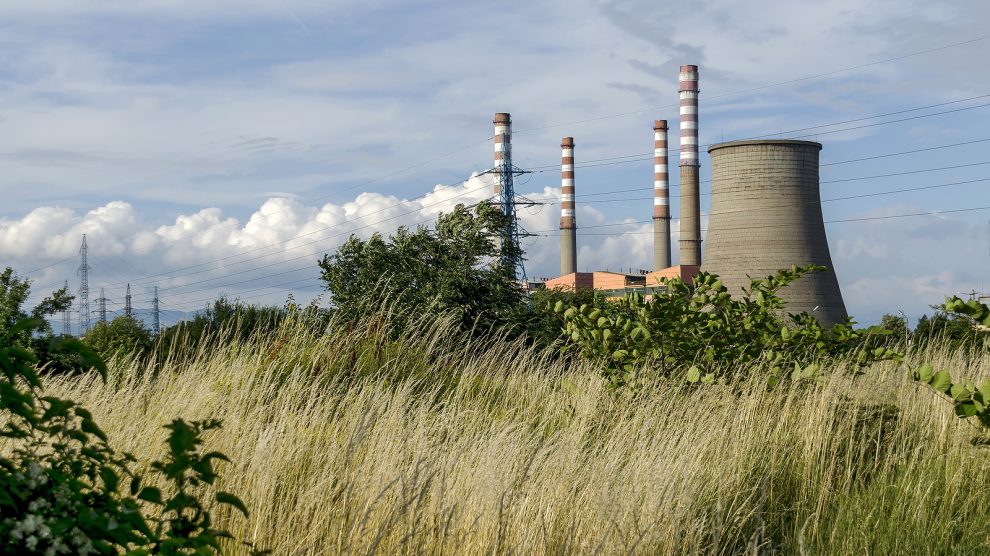A coal exit date of 2038 or 2040 is ‘inadequate’ say environmentalists.
Hit by a political crisis that has left the country without a government for more than six months, Bulgaria last week finally submitted its National Resilience and Recovery Plan (NRRP) to the European Commission, a prerequisite for receiving financial support from the European Union’s Covid-19 recovery fund.
- Montenegro set to enjoy emerging Europe’s highest economic growth
- Will Bulgaria and Croatia meet their eurozone accession deadlines?
- How the Pravetz 82 introduced a generation of Bulgarians to the computer
Bulgaria’s share of the fund – worth in total almost 800 billion euros – is around 6.6 billion euros in non-reimbursable grants, and a further four billion euros in loans.
Inconclusive parliamentary elections in April and July failed to produce a government, delaying submission of the plan. Bulgaria will once again try to elect a parliament capable of forming a working coalition on November 14, in its third general election of the year.
Bulgaria’s caretaker administration, led Stefan Yanev, had been reluctant to take long-term economic decisions, but the ongoing failure of the country’s political parties to form a permanent government forced its hand.
Yanev has hinted however that any final deal with the EU would need to signed off by a permanent administration.
“We hope that we are opening the road for detailed negotiations with the European Commission that will lead to the plan’s acceptance so that fresh funds can flow to Bulgarian business,” said Yanev on October 15.
Coal exit
One of the key policies included in the NRRP submitted to Brussels is a commitment to exit coal by 2038 or 2040.
While it makes Bulgaria the 20th European country to announce a coal exit date, it has already been criticised as “inadequate”, and leaving Bulgaria far short of its responsibilities on tackling climate change. The country’s interim government is likely to face tough negotiations with the European Commission, which has been pushing member states to bring forward their coal exits.
According to Europe Beyond Coal, an NGO, Bulgaria’s coal industry is on the brink of collapse, with an estimated one billion euros of upgrades required to bring it in line with EU emission standards.
The country’s largest coal power plant – state-owned Maritsa East 2 – is more than 760 million euros in debt, and is waiting to find out if the European Court of Justice (ECJ) will overrule a Bulgarian government decision to allow it to emit twice as much toxic SO2 as permitted under EU law.
Coal plants owned by energy tycoon, Hristo Kovachki, have also been found to be in breach of EU and World Health Organisation air pollution standards, and are suspected of under-reporting emissions and therefore avoiding to pay approximately 30 million euros under the EU’s emissions trading scheme.
“The Bulgarian government’s dragged-out coal exit fails to protect its people, and allows ‘coaligarchs’ to continue scooping up millions in taxpayer money, while polluting our air and water,” says Desislava Mikova, a climate and energy campaigner at Greenpeace Bulgaria.
“A just transition in Bulgaria would not only put an end to this, but would help combat the climate emergency, and breathe new life into devastated local environments and communities monopolised by coal. The EU’s just transition funds are vital in accelerating this process. Our country can’t afford to miss out on them.
“More than 60 percent of Bulgarians want coal gone by 2030 because they see a better future ahead with renewable energy. They are now being denied this opportunity so that rich polluters can keep their exploitative businesses on life support.”
Not keeping up with the neighbours
Bulgaria’s coal exit plan lags far behind those of its direct neighbours Greece, North Macedonia and Romania, which have announced 2025, 2027 and 2032 coal exit plans respectively.
“Such a late coal phase out date will delay crucial investments in things like renewable energy projects and retraining schemes for workers which are needed to transition to a future without fossils,” says Radostina Slavkova, climate and energy coordinator at Za Zemiata – Friends of the Earth Bulgaria.
“These, and the need to limit temperature rise to 1.5°C above pre-industrial levels, should decide Bulgaria’s coal exit date, not the wants of coal companies whose main motive is to profit from the Bulgarian taxpayer for as long as possible.”
Bulgaria is still highly dependent on coal, and retains large coal deposits. Nearly 40 per cent of electricity comes from coal – a sector that employs around 100,000 people – while 36 per cent is generated by nuclear energy and 23 per cent from a growing renewables sector.
Environmental campaigners want the renewables sector to grow faster.
“People across Europe want their governments to act to provide affordable energy, clean air, and a safe climate. The Bulgarian government needs to understand that it can only deliver on these demands by exiting coal this decade and massively accelerating the roll-out of renewables,” says Kathrin Gutmann, campaign director at Europe Beyond Coal.
Unlike many news and information platforms, Emerging Europe is free to read, and always will be. There is no paywall here. We are independent, not affiliated with nor representing any political party or business organisation. We want the very best for emerging Europe, nothing more, nothing less. Your support will help us continue to spread the word about this amazing region.
You can contribute here. Thank you.








Add Comment